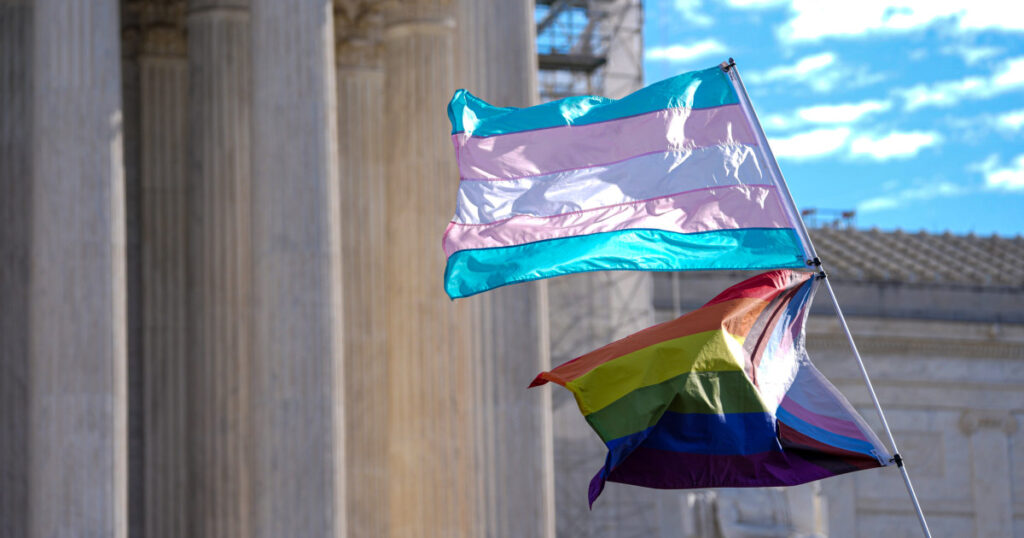
WASHINGTON — The Supreme Court on Thursday entered the contentious legal battle over state laws that prohibit transgender athletes from participating in girls’ and women’s sports, agreeing to hear cases from West Virginia and Idaho. The cases involve two transgender students, Becky Pepper-Jackson and Lindsay Hecox, who have challenged these state bans.
Both students have secured injunctions allowing them to continue competing. Pepper-Jackson, a 15-year-old, is on puberty-blocking medication, while Hecox, a 24-year-old college student, receives testosterone suppression and estrogen treatments. The court’s decision to hear these cases comes shortly after its conservative majority upheld a Tennessee law banning gender-affirming care for minors, leaving several legal questions about transgender rights unresolved.
Legal and Social Implications
The Supreme Court’s involvement underscores the national significance of the issue. “Categorically excluding kids from school sports just because they are transgender will only make our schools less safe and more hurtful places for all youth,” said Joshua Block, an American Civil Liberties Union lawyer representing the students. “We believe the lower courts were right to block these discriminatory laws, and we will continue to defend the freedom of all kids to play.”
Conversely, West Virginia Attorney General JB McCuskey expressed approval of the court’s intervention, stating, “The people of West Virginia know that it’s unfair to let male athletes compete against women; that’s why we passed this commonsense law preserving women’s sports for women.” Idaho Attorney General Raúl Labrador echoed similar sentiments, emphasizing the need for an “equal playing field” for women and girls.
Background and Broader Context
The states’ laws, which categorically bar transgender students from participating in girls’ or women’s sports, reflect a broader national trend. More than half of U.S. states have enacted similar legislation, though legal challenges remain unresolved. The debate over transgender rights has become a flashpoint in national politics, influencing the recent presidential election. Former President Donald Trump criticized Democrats for supporting transgender rights, while his administration has begun reversing measures introduced by President Joe Biden to expand protections for transgender individuals.
In February, the National Collegiate Athletic Association (NCAA) announced a new policy limiting women’s sports to “student-athletes assigned female at birth only.” This policy shift highlights the ongoing tension and evolving standards regarding transgender athletes’ participation in sports.
Case Details and Legal Arguments
In Pepper-Jackson’s case, a federal judge initially ruled in her favor but later concluded that the law was likely legal, allowing enforcement against her. Pepper-Jackson appealed, and the 4th U.S. Circuit Court of Appeals blocked West Virginia officials from enforcing the law. The Supreme Court rejected West Virginia’s attempt to enforce the law against her, allowing her continued participation in school sports.
Similarly, Hecox obtained an injunction against Idaho officials, upheld by the 9th U.S. Circuit Court of Appeals. Despite their legal victories, both students faced challenges in their athletic pursuits. Pepper-Jackson placed third in middle school discus and sixth in shot put, competing against cisgender girls, and finished 67th out of 68 in a cross-country event. These cases question whether such laws violate the 14th Amendment, which mandates equal legal protection, and Title IX of the Education Amendments of 1972, which prohibits sex discrimination in education.
Future Implications
The Biden administration has proposed that blanket bans on transgender athletes would be unlawful under Title IX, though restrictions in competitive sports may be permissible. However, the Trump administration has countered with an executive order titled “Keeping Men out of Women’s Sports,” reflecting a stark policy divergence.
In 2020, the Supreme Court ruled that federal laws barring sex discrimination in employment protected LGBTQ individuals, a decision that angered conservatives. The court has yet to determine whether this reasoning applies to Title IX.
Oral arguments for the current cases are expected later this year, with a ruling anticipated by June 2026. The outcome could significantly impact the legal landscape for transgender rights in the United States, potentially setting a precedent for how similar cases are addressed in the future.







